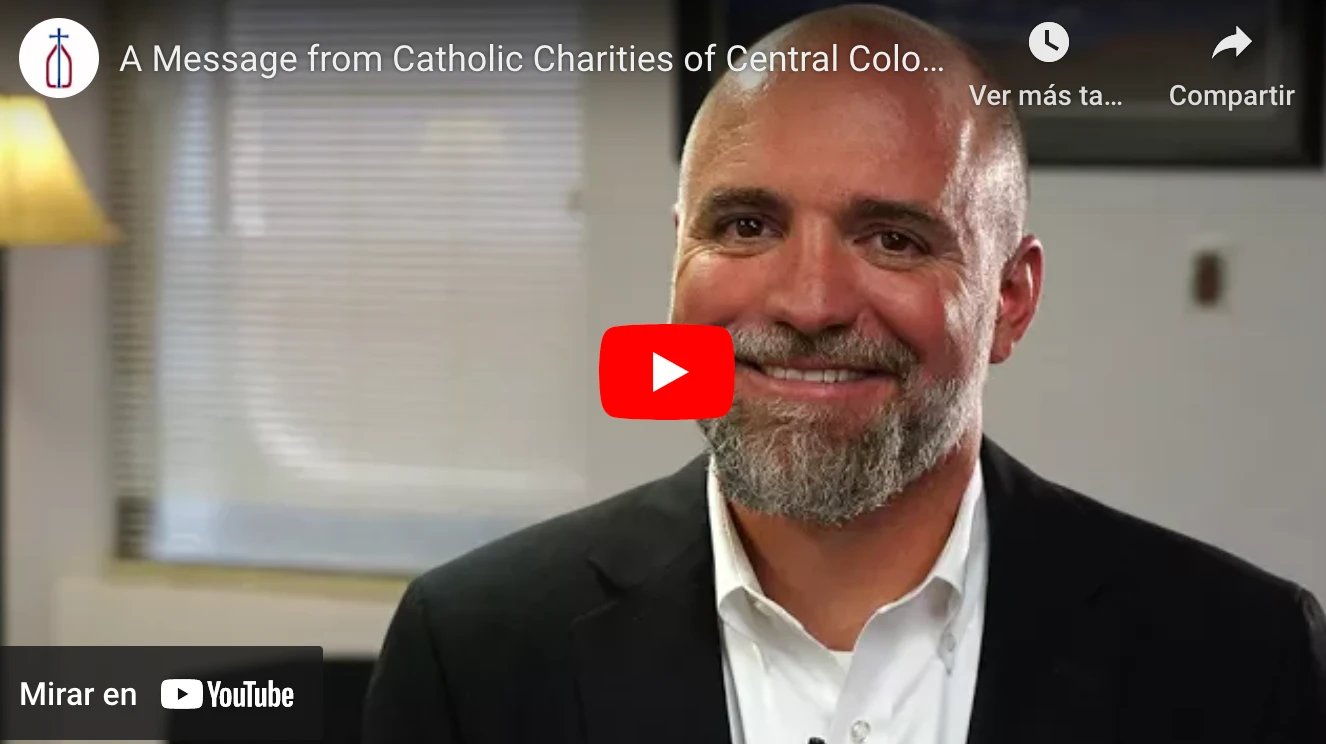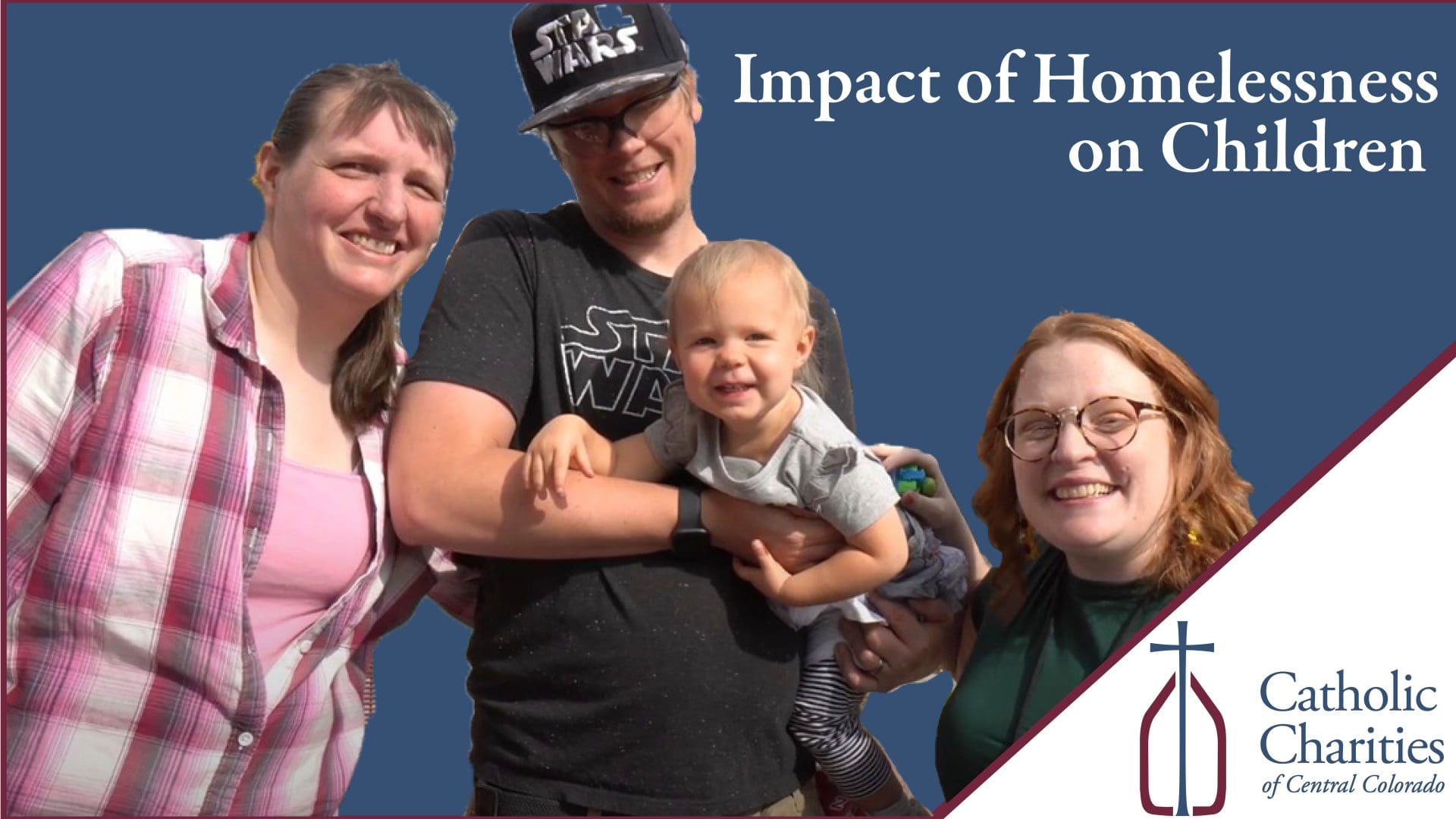
BY ROCHELLE SCHLORTT
Catholic Charities of Central Colorado was extremely disappointed by the announcement from the White House this morning regarding the “orderly transition and wind-down of DACA (Deferred Action for Child Arrivals).” We believe that this transition represents a profound injustice to the young men and women who will be impacted, and we stand in solidarity with all DACA recipients, especially those in our local community who have become thriving members of our workforce and schools. This action undermines the common good and stands in profound conflict with our Christian faith and our nation’s history.
We remain hopeful that Congress will act to pass the Dreamer Act to provide a legal path for approximately 800,000 people currently in the DACA program who were brought to the United States as children. Locally, our Family Immigration Services Office has assisted about 300 young people to apply for and receive DACA and has renewed about 200 of these applications since 2012. We estimate about 17,000 young people will be impacted state-wide.
The “Dreamers” are a group of young people who were brought to the United States by their parents as children. They do not know any other country as their home. DACA has allowed them to receive a social security number, work legally, attend college, start businesses, purchase homes, apply for loans, and be complete and productive members of our communities.
To qualify for DACA, applicants had to be under 31 years of age when the policy went into effect in 2012 and lived in the United States continuously since June 15, 2007. They also had to have arrived in the county before turning 16. Anyone with a serious criminal conviction could not apply for DACA.
The Brooking Institute, a nonprofit public policy organization, found that two-thirds of the Dreamers had come to the U.S. at the age of 10 or younger, and 36 percent were under age six when they arrived. The study found 24 percent of DACA-eligible workers were attending college, a slightly larger share than the 20 percent of the general population in the same age group, and that 83 percent of the group was employed versus 79 percent of the general population.
Repealing DACA will not only be devastating for these young people, their families, and their businesses, it will be economically devastating for our communities. The CATO Institute estimates the cost of deporting DACA participants would be over $60 billion to the federal government, along with a $280 billion reduction in economic growth over the next decade (source: https:/ /www.cato.org/blog/economic-fiscal-impact-repealing-daca).
News of the repeal of DACA on top of the impact of Hurricane Harvey on the state of Texas is even more harmful since Texas has the second largest number of DACA registrants – 110,050 (source: US Citizenship and Immigration Services), and the state also stands to lose $6.1 billion in annual GDP. Colorado stands to lose $800 million in GDP, according to a CNBC report.
Important Information:
What to do if you currently have DACA status. If your current application expires before March 5th, 2018, retain the services of a reputable attorney or qualified organization, such as Catholic Charities, who can help process your renewal application before the deadline to obtain a 2-year extension.
What to do if you are eligible (fall into the correct age range and meet the other residency qualifications) but have not yet applied for DACA. Do not apply. You no longer qualify.
Here are the key points to know about the new changes to DACA:
If you have never applied for DACA before:
Do not apply. Your application will be rejected.
If you have DACA currently, and it expires on or before March 5, 2018:
You MUST file to renew your DACA, AND your application must be RECEIVED by the U.S. Citizenship and Immigration Service by Thursday, October 5, 2017. It can then be renewed for another full two years.
If you have DACA currently, and it expires after March 5, 2018:
You are NOT eligible to renew your DACA, but it will remain valid for the full two-year period until it expires.
We urge everyone who is eligible to renew or has questions about DACA to contact our Office of Family Immigration Services immediately at 719-866-6515 or immigration@ccharitiescc.org to schedule an appointment. We are prioritizing these cases to help as many people as possible to renew DACA before the October 5, 2017, deadline.
Descargue hoja informativa sobre DACA
For up-to-date and accurate information, please visit: https://www.uscis.gov/daca2017
Rochelle Schlortt is the Chief Communications Officer with Catholic Charities of Central Colorado.




